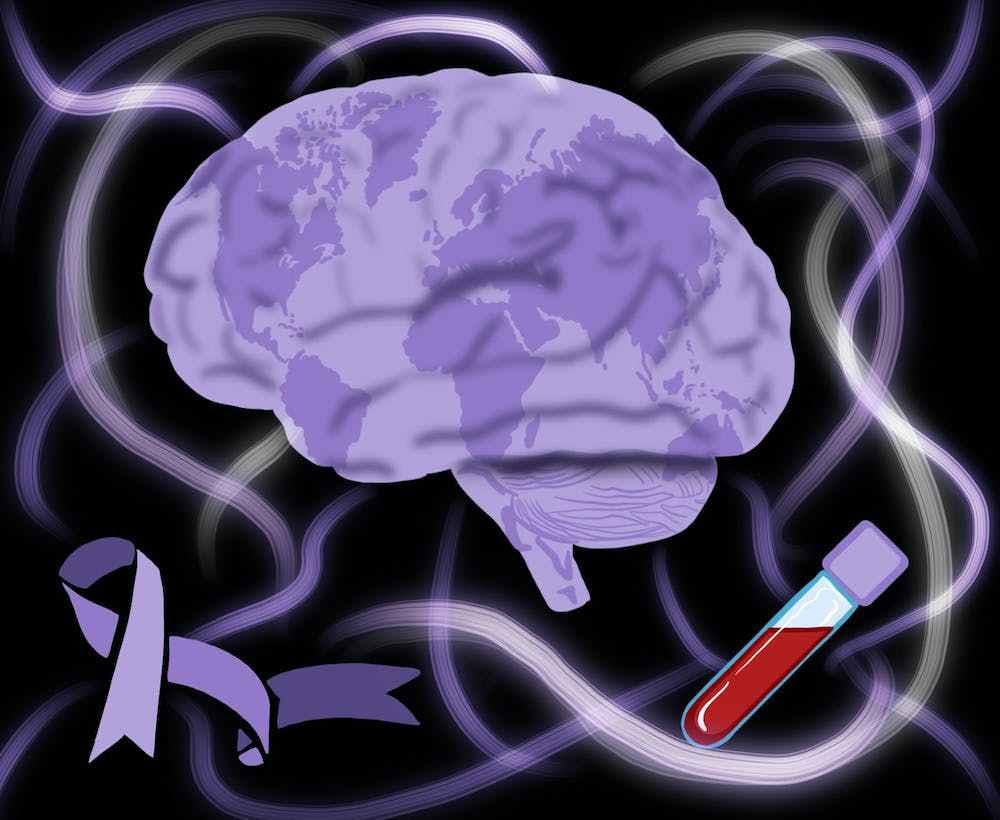Alzheimer’s disease — largely categorized by a detriment to memory and cognitive abilities as one ages — has been around for tens of thousands of years. But with new tests, new treatments and new funding, experts agree: Researchers are at a turning point in treating Alzheimer’s disease.
“This is a new era,” said David Shenk ’88, journalist and author of “The Forgetting: Alzheimer's, Portrait of an Epidemic,” at a panel for World Alzheimer’s Day last Thursday. The event was sponsored by the Robert J. and Nancy D. Carney Institute for Brain Science. “It's not an overstatement to say that in the last year or two, we are at the beginning of the end of curing Alzheimer’s disease.”
Shenk facilitated the panel at Butler Hospital, where Alzheimer’s researchers and advocates from Rhode Island discussed their work and the current state of Alzheimer's treatment — a state of “genuine hope,” Shenk said.
Part of that hope comes from improved diagnostic capabilities. As Alzheimer’s progresses, protein changes in the brain happen decades before the onset of symptoms. Identifying those early changes could eventually be as simple as a test during a visit to the eye doctor, said Jessica Alber, assistant professor of neuroscience and biomedical and pharmaceutical sciences at the University of Rhode Island, who spoke at Thursday’s panel.
Researchers have determined that physical changes in the retina mirror changes to the brain correlated with early Alzheimer’s disease. According to Alber, clinicians could identify people at high risk for the disease and quickly introduce treatment using a test that would take pictures of the back of the eye — where the retina is located — during eye exams.
Or, as Alber put it, could help to “stop the disease before it starts.”
As humans age, the glial cells that support and protect neurons become coated with plaques and turn toxic. This prevents neurons from repairing themselves and diminishes their ability to resist aging, causing the onset of Alzheimer’s.
Researchers have known about that process for some time, Gregorio Valdez, professor of molecular biology, cell biology and biochemistry at the University, said at Thursday’s panel. But now, a class of drugs called monoclonal antibodies have been found to prevent and reverse plaque buildup, to some extent helping to treat Alzheimer’s disease.
“We can actually clear plaques, so we can remove that igniter” of Alzheimer’s, Valdez said. “We can put monoclonal antibodies in patients and get them through the blood-brain barrier.”
Valdez has also considered how to modify animal models of Alzheimer’s research to make them more applicable to humans.
“Alzheimer’s is a disease where the immune system goes absolutely bananas,” he said. “When we work with animal models in Alzheimer’s disease, they are housed in a very controlled environment. They do not see the same assortment of pathogens that you and I see all the time — what my kids bring in the house, when I go to Starbucks.”
Valdez was part of a team that devised a method to introduce an assortment of pathogens to animal models of Alzheimer’s disease. With more mature, heightened immune systems, animal models can better mimic human conditions, making results more translatable.
Yet human subjects are still one of the most important parts of the burgeoning field of Alzheimer’s research. Research relies on study participants to validate treatments, discover new mutations and even inspire new ideas for better ways to treat Alzheimer’s disease.
“Every person contributing to research is invaluable, whether you’re doing a drug trial or observational research or genetic research,” said Ted Huey, professor of psychiatry and human behavior and director of the Memory and Aging Program at Butler Hospital.
“All of the things we’re talking about … none of (them) would have happened without participants,” Huey said at Thursday’s panel.
The ultimate goal of Alzheimer’s researchers, panelists agreed, is to prolong vitality. Valdez described his “walking encyclopedia” of a neighbor who, at 101 years old, still drives and often talks with Valdez about history.
As Shenk put it, many of the people with the most wisdom, the best ideas and the most to teach have been lost to Alzheimer’s for 100,000 years.
“We can now taste the end of that era,” he said.
Haley Sandlow is a contributing editor covering science and research. She is a junior from Chicago, Illinois studying English and French.





